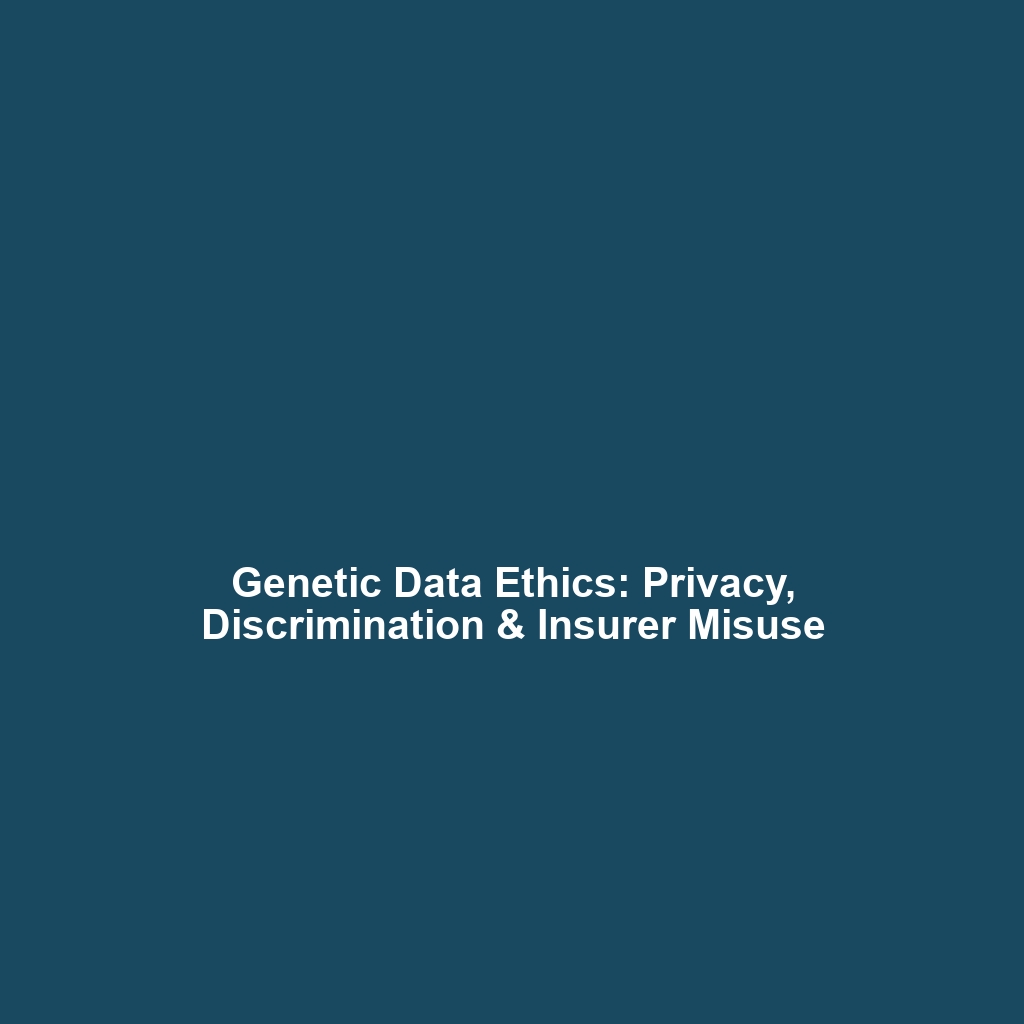Ethical Concerns: Issues Surrounding Privacy, Discrimination, and the Potential Misuse of Genetic Data
Introduction
The Human Genome Project (HGP) has revolutionized our understanding of genetics, but it also raises significant ethical concerns regarding privacy, discrimination, and the potential misuse of genetic data by insurers or employers. As genetic information becomes increasingly accessible, the risks of exploitation and discrimination loom large. A balanced approach that safeguards individual rights while embracing the benefits of genetic research is critical for a future that respects both privacy and advancement.
Key Concepts
Privacy Issues
One of the foremost concerns is privacy. Genetic data holds intimate details about individuals, and unauthorized access can lead to serious breaches of personal information.
Discrimination Concerns
Employment and insurance discrimination represent significant risks associated with the disclosure of genetic information. Employers and insurers may use genetic data to make decisions that unfairly disadvantage individuals based on their genetic predispositions.
Potential Misuse of Genetic Data
The potential misuse of genetic data encompasses a range of ethical considerations from data security to informed consent. Legislation like the Genetic Information Nondiscrimination Act (GINA) aims to protect against discrimination in health insurance and employment, but gaps remain.
Applications and Real-World Uses
Ethical concerns relating to privacy and discrimination significantly impact how the Human Genome Project’s findings are applied in real-world scenarios. For instance:
- Genetic Testing: Many companies offer genetic tests to consumers; however, the misuse of resulting data can lead to discrimination in health coverage.
- Employer Policies: Some employers may seek genetic information to inform health policies, which can unintentionally lead to bias against certain employees.
Current Challenges
The study and application of ethical concerns regarding genetic data face several challenges:
- Lack of Comprehensive Legislation: While there are laws in place, the rapidly evolving field of genetics often outpaces legal protections.
- Public Awareness: Many individuals remain uninformed about their rights regarding genetic data, which complicates issues of consent and privacy.
- Potential for Misinterpretation: Genetic data is complex and can lead to misinterpretations that may unjustly impact a person’s life.
Future Research and Innovations
Future research focused on ethical concerns within the Human Genome Project will likely explore:
- Genomic Databases: Innovations in secure genomic data storage and access to protect individuals’ privacy.
- Policy Recommendations: Development of guidelines that ensure ethical use of genetic data, promoting both innovation and rights protection.
- Awareness Programs: Initiatives aimed at educating the public about their rights in the context of genetic data.
Conclusion
In conclusion, ethical concerns surrounding privacy, discrimination, and misuse of genetic data are crucial considerations in the ongoing evolution of the Human Genome Project. Addressing these issues requires collaboration among scientists, ethicists, policymakers, and the public. It is essential to foster an environment where genetic advancements are made with respect to individual rights. For further reading on the implications of the Human Genome Project, visit our articles on Genetic Data Privacy and Genetic Discrimination.
